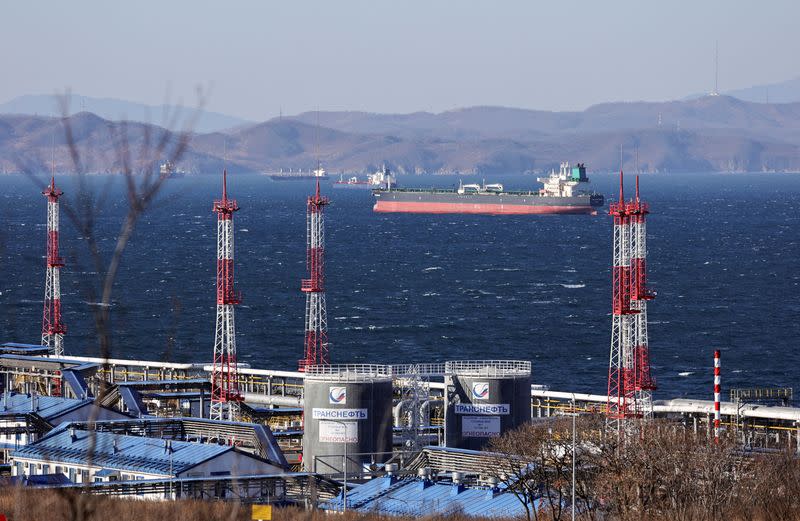New sanctions threaten Russian oil sales to India

By Nidhi Verma and Florence Tan
NEW DELHI/SINGAPORE (Reuters) - Fresh U.S. sanctions on Moscow threaten to dent Russian oil sales to India, the biggest buyer of Russian seaborne crude, and complicate efforts by Indian state refiners to secure annual supply deals, three industry sources familiar with the matter said.
Washington on Friday imposed sanctions to mark the second anniversary of Moscow's invasion of Ukraine and retaliate for the death of opposition leader Alexei Navalny.
The sanctions target Russia's leading tanker group, Sovcomflot, which Washington accused of being involved in violating the G7's price cap on Russian oil, as well as 14 crude oil tankers tied to Sovcomflot.
Sources said Indian refiners are concerned the latest sanctions will create "challenges" in getting vessels for Russian oil and could drive up freight rates. That may narrow the discount for the oil, which is bought from traders and Russian companies on a delivered basis.
In addition, Moscow may have to push even more volumes through traders to shield from further sanctions risk, adding to uncertainties, the industry sources said, declining to be named because of the sensitivity of the matter.
India rarely bought Russian oil before 2022 due to high freight costs, but refiners in the world's third-largest oil importing nation are now big buyers, benefitting from lower prices, after Europe banned Russian oil imports.
Russia emerged as India's top oil supplier in 2023. Through term deals and spot market purchases, the South Asian nation imported about 1.66 million barrels per day of Russian oil in 2023 compared to an average 652,000 bpd in 2022.
State refiners Indian Oil Corp, Bharat Petroleum Corp (BPCL) and Hindustan Petroleum Corp (HPCL) are in joint talks with Russian major Rosneft for an annual deal to secure a combined volume of up to 400,000 bpd of Russian oil, mainly Urals, for the fiscal year that starts on April 1, sources said.
Sources said final volumes under the planned term deals depend on payment terms and discounts offered by Russia.
Rosneft has offered a discount of $3-$3.50 per barrel to Dubai prices, two of the sources said, costlier than top refiner Indian Oil's current deal with Rosneft, which ends on March 31, at a discount of $8-$9 to Dubai quotes on a cost and freight basis.
Refiners consider the proposed discount to be thin, given the uncertainties brought by sanctions, sources said.
Indian state refiners are not seeking supplies of Sokol grade crude under the planned term deal due to payment issues, they added.
The three refiners and Rosneft did not respond to requests for comment.
An Indian government source said India would continue buying Russian oil only if it is sold below the price cap in a non-sanctioned vessels.
The country's oil ministry did not respond to a request for comment.
(This story has been refiled to remove an incorrect picture)
(Reporting by Nidhi Verma and Florence Tan; Editing by Tony Munroe and Sonali Paul)


